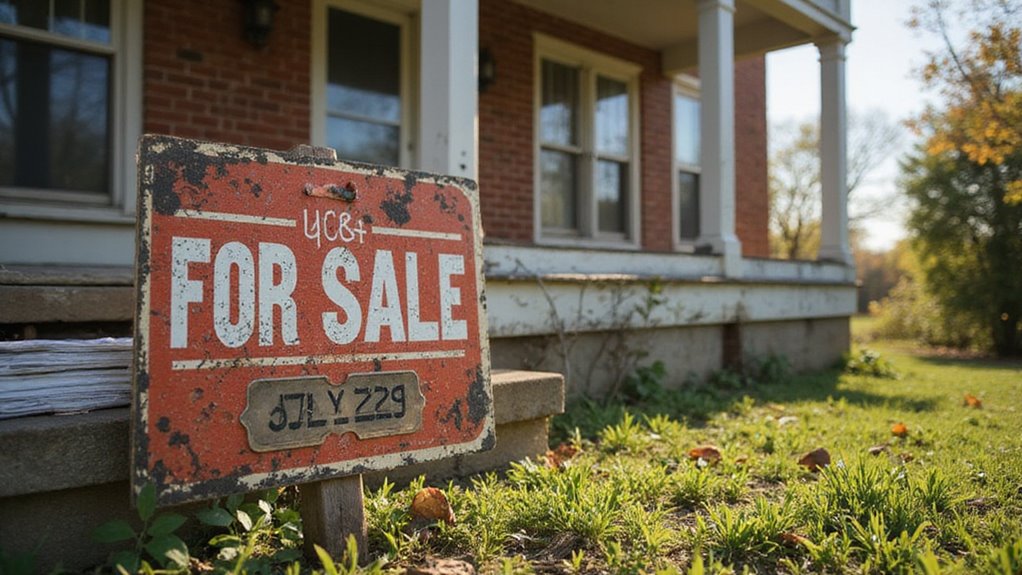Selling a house with title issues in Virginia can be a real headache. You might face liens, unclear ownership, or disputes over heirs. These problems can delay or even stop your sale. It’s a frustrating situation that needs careful handling to avoid legal trouble. And the stress doesn’t end there.

Title issues often involve court approvals or tax problems. Each step feels like a new obstacle. Delays can cost you time and money, making the process even tougher to manage. But there’s a way forward to resolve these challenges.
Hiring a skilled real estate attorney is the key to selling a house with title issues. They can guide you through legal knots. With their help, a smooth sale is possible. This blog will guide you through solving title issues for a successful house sale in Virginia.
Key Takeaways
- Resolve title issues by conducting a thorough title search to identify liens or claims in Virginia.
- Hire a skilled attorney to navigate legal complexities and clear title disputes efficiently.
- File necessary probate documents in Virginia circuit court to address ownership issues promptly.
- Obtain court approval before selling, ensuring compliance with state laws and heir rights.
- Consult experts to manage tax implications and minimize financial risks during the sale.
Understanding the Probate Process

Navigating probate to sell a house with title issues in Virginia is manageable. Start by confirming the deceased owner’s will or estate status. This step helps clear title problems quickly. If you act fast, probate doesn’t have to be long or expensive. Hire a skilled attorney to handle legal details. They ensure nothing is missed during the process.
Be cautious if the deceased had assets or heirs abroad. International probate laws can differ and create challenges. If such issues arise, don’t assume standard rules apply. Gather all necessary documents promptly to avoid delays. Consult experts to make the process smoother. With proper steps, title issues can be resolved efficiently.
Virginia Probate Requirements
When handling Virginia probate requirements, you’ll need to understand the specific court procedures and timeline expectations to avoid delays in selling a house with title issues. Make sure you’re prepared with all necessary legal documentation and know the executor’s rights to streamline the process. Trust that with the right guidance, like from Align Real Estate Solutions, you can tackle these steps efficiently. Additionally, for inherited properties, their team can provide quick sale solutions to help heirs avoid the traditional sale stress.
Court Procedures
Selling a house with probate title issues in Virginia can be tricky. You must follow specific court steps to resolve disputes. If the probate is contested, expect hearings in a Virginia circuit court. Prepare to show evidence like witness testimony for your claim. The court might use jury deliberation if the case gets complex. This ensures a fair outcome for everyone involved.
You need to meet all legal rules during the process. File required documents on time to prevent delays. If you miss deadlines, the sale could face setbacks. Partnering with experts like Align Real Estate Solutions helps a lot. They manage paperwork and legal challenges for you. This makes the sale process much smoother and easier.
Timeline Expectations
Wondering about probate title issues in Virginia? The timeline varies based on estate complexity. Typically, probate starts within 30 days after death. Full resolution might take months or even a year.
Here’s what affects the duration:
- Simple estates often finish in 6-9 months.
- Contested wills may extend beyond a year.
- Missing heirs can cause significant delays.
- Court backlogs could add extra weeks.
If delays happen, stay proactive and track deadlines. Managing expectations helps during this process.
Legal Documentation
Handling legal documentation for probate in Virginia is vital to resolve title issues. When selling a house, ensure all probate rules are followed. A clear title prevents ownership disputes during the sale. Start with a Title Search to find any liens or claims. This step confirms the property’s legal status quickly.
If modifications exist, check local rules and get Zoning Permits. You must file forms like the asset inventory in court. Completing these tasks early helps avoid delays in the sale. If issues arise, address them promptly for a smooth transfer. A legal transfer protects everyone involved in the process.
Executor Rights
Understanding executor rights is key when handling probate in Virginia under state laws. As an executor, you carry big duties. You must show accountability to the estate and beneficiaries. If issues arise, you need to manage property titles carefully. Always act in everyone’s best interest.
Here are important points to know:
- Legal Power: You can manage or sell estate property within legal limits.
- Asset Listing: You must list all estate assets with accuracy.
- Debt Payment: Pay off debts before giving assets to heirs.
- Heir Updates: Keep beneficiaries updated to build trust always.
How to Sell During Probate

If you’re selling a house during probate in Virginia, you’ll need to navigate the court approval process to ensure the sale is legally sound. You must also secure an accurate property valuation and meet specific marketing requirements to attract potential buyers. Additionally, make sure you qualify buyers properly to avoid delays or complications in finalizing the transaction. For a faster and hassle-free option, consider working with cash home buyers who can provide guaranteed all-cash offers to simplify the probate sale process.
Court Approval Process
Selling a house during probate in Virginia needs careful court approval. You must follow legal steps for estate compliance. Courts use discretion to check if the sale is fair. They ensure beneficiaries’ interests are safe. File a petition with sale details for review.
Here are key steps to understand:
- Documents must show clear sale terms for court review.
- A judge will evaluate fairness at a hearing.
- Heirs might object, and you should address concerns.
- If approved, you can finalize the sale.
Work quickly to avoid delays. Trust experts like Align Real Estate Solutions for help.
Property Valuation
Property valuation in Virginia probate starts with finding the true worth of the estate’s asset. You must check current market trends to see what buyers pay for similar homes. If trends change, update your data to prevent wrong pricing. Staying informed helps ensure a fair value for the property.
Zoning laws might limit the property’s use or appeal to buyers. If zoning affects value, factor it into your assessment. Hire a professional appraiser with probate experience for accurate results. They can handle title issues and local rules effectively.
Marketing Requirements
Selling a house during probate in Virginia needs a clear marketing plan. You face unique challenges in this process. If done right, you can draw serious buyers quickly. Digital Marketing helps you reach a wide audience easily. SEO Strategies boost your listing on search engines for better visibility.
To make your property noticeable, try these effective marketing ideas:
- Highlight special features in listings with striking photos.
- Share posts on social media for local Virginia connections.
- Run targeted ads to attract probate property buyers.
- Write descriptions with keywords for improved search results.
If you follow these tips, your property can shine in a tough market.
Buyer Qualification
Qualifying buyers is essential when selling a house during probate in Virginia. It ensures they can complete the purchase. If buyers lack funds, the sale might fail amidst legal issues. Check their Credit Score first to gauge reliability. A good score shows they can likely secure financing.
Next, confirm their Funding Source for the purchase. They must have money ready, whether through cash or mortgage. Request proof like bank statements or pre-approval letters. If they can’t provide this, delays in probate court may occur. Thorough vetting protects the estate and speeds up the process.
Legal Considerations in Probate Sales
When selling a house during probate in Virginia, you must carefully navigate the legal landscape surrounding heir rights, tax implications, court supervision, and distribution rules. Understand that heirs have specific claims to the property, and you’ve got to address potential tax burdens while adhering to court oversight. Failing to follow these strict guidelines can delay the sale or lead to disputes, so ensure you’re fully informed on each aspect.
Heir Rights
Handling heir rights in probate sales is a tough task when selling a house in Virginia. You must follow complex laws to identify all heirs and protect their rights. Heir tracing often takes time to find potential claimants. Adoption effects can also change inheritance claims, adding more issues. Legal guidance is vital to manage these challenges.
Here are some tricky situations you might face:
- A lost heir may appear later, demanding a share.
- Adopted family members could question standard inheritance rules.
- Disputes might start over unclear family records.
- Courts may need to step in if disagreements persist.
If you tackle these problems early, delays can be avoided. Partnering with experts helps simplify the process. They ensure a clear title for the property.
Tax Implications
Tax implications can impact your finances during a probate sale in Virginia. If the sale price exceeds the stepped-up basis, Capital Gains tax might apply. This basis is the property’s fair market value when the owner passed away. Calculating it correctly helps avoid paying extra taxes.
You should also learn about Deduction Rules for possible exemptions. These could lower estate taxes or cover selling costs. Consulting a tax expert ensures compliance with Virginia and federal laws. This step minimizes risks and unexpected financial burdens. If you understand these tax aspects, the probate sale process becomes smoother.
Court Supervision
Court supervision is key when handling a probate sale in Virginia. It ensures all legal steps are followed correctly. If title issues arise, courts watch closely to protect everyone involved. They may use specific rules to manage inherited property fairly. If debts exist, they check to prevent sale problems. You must submit papers and wait for approvals, which can cause delays.
Here’s what court supervision involves:
- Regular hearings: You attend court to report on the sale’s progress.
- Legal filings: You must submit clear reports for full transparency.
- Third-party reviews: Experts might check the property’s title condition.
- Final approval: You need the court’s permission to close the sale.
Distribution Rules
Virginia’s probate sales follow specific distribution rules for allocating assets like real estate to heirs or beneficiaries. These rules ensure fair division under state laws. If you ignore them, legal disputes might delay property sales.
Probate can feel tricky, much like balancing a network’s flow. Assets must reach the right people. Using online tools could simplify handling documents. When you follow Virginia’s laws, you protect the estate’s value. This ensures a lawful transfer to rightful owners.
Managing Probate Property

When managing probate property in Virginia, you’ve got to prioritize key responsibilities to protect the estate’s value. Focus on maintenance requirements, secure proper insurance, and implement security measures to safeguard the home while handling title issues. Don’t overlook cost management, as you’ll need to balance expenses to avoid draining estate resources during the selling process. If title issues complicate the sale, consider working with local buyers who can offer fair cash solutions to simplify the process.
Maintenance Requirements
Handling a probate property’s maintenance in Virginia is challenging, especially with title issues. You must focus on essential upkeep to protect the property’s value. Prioritize tasks like lawn care for better curb appeal. If yards overgrow, they can turn away potential buyers. Also, improve energy efficiency by sealing drafts. Using efficient appliances can lower utility bills.
Here are the key issues to tackle:
- Overgrown yards require frequent mowing and trimming.
- Leaky windows waste energy and raise costs.
- Peeling paint shows neglect to possible buyers.
- Clogged gutters might cause water damage.
If these problems persist, the property’s condition worsens. Act quickly to keep it marketable despite title challenges.
Insurance Needs
Managing a probate property in Virginia with title issues requires proper insurance. You must protect your investment from potential risks. Assessing these risks helps ensure you have adequate coverage. If unexpected damages occur, the right insurance can save you.
Earthquake Insurance is wise, even if seismic events are rare in Virginia. It can cover significant losses from earthquakes. Fire Insurance is also crucial as fires are a common threat. This policy protects against devastating property damage.
Reviewing policy terms ensures they fit your specific needs. If terms are unclear, ask for clarification before signing. These coverages provide financial security during title complications. They help preserve the property’s value until issues are resolved.
Security Measures
Managing a probate property in Virginia with title issues requires strong security to protect your asset. You must act quickly to prevent unauthorized access or legal disputes. If title problems persist, safety remains your top priority.
Here are key steps to secure your probate property:
- Install strong locks and alarms to stop break-ins effectively.
- Add surveillance cameras to track activity around the property.
- Restrict access by sharing entry info only with trusted people.
- Use encrypted tools for private communication with involved parties.
- Keep detailed records of all property management for legal safety.
Cost Management
Managing costs for your probate property in Virginia is crucial for efficiency. Start with clear Cost Estimation to grasp expenses. Calculate costs like legal fees, taxes, and maintenance early on. If title issues exist, prepare for extra legal expenses. This helps you avoid unexpected financial burdens.
Stay proactive by tracking every expense carefully. Prioritize essential spending to keep costs low. Use Savings Strategies to reduce expenses wherever possible. For instance, negotiate with service providers for better rates. If selling as-is, consider buyers like Align Real Estate Solutions for cash deals. They often buy without requiring repairs, saving you money. By using accurate Cost Estimation and smart Savings Strategies, you can handle challenges well. This ensures maximum returns with minimal financial stress during the sale.
Simplify Your Probate Sale with Align Real Estate Solutions
Navigating a probate sale in Virginia can be easy with Align Real Estate Solutions. We are a trusted cash home buyer. Our team simplifies the process for you. We handle paperwork and legal challenges. You can sell without stress or delays. Get a fair price for your house as-is.
Picture a smooth experience with our help:
- Easy Process: Our team takes care of every step.
- No Repairs Needed: Sell your home in any state.
- Legal Support: We fix title problems if they arise.
- Quick Closing: Finalize the sale when you’re ready.
With Align Real Estate Solutions, probate sales become simple. We offer guaranteed cash offers to ensure a hassle-free transaction.








